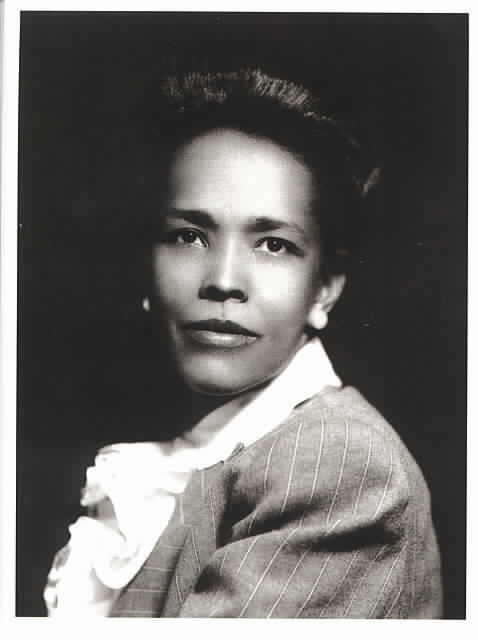Born in Norfolk, Virginia, on December 13, 1903, Ella Baker was one of the leading figures in the civil rights movement of the 1950s and 1960s. She grew up in rural North Carolina. Baker was close to her grandmother, a former slave. Her grandmother told Baker many stories about her life, including a whipping she had received at the hands of her owner. A bright student, Baker eventually went to Shaw University in Raleigh, North Carolina. She was the class valedictorian when she graduated in 1927. After she completed her degree, Baker moved north to New York City. There she worked a number of jobs while trying to make ends meet. Baker helped start the Young Negroes’ Cooperative League, which allowed its members to pool their funds to get better deals on goods and services.
Around 1940, Baker became a field secretary for the National Association for the Advancement of Colored People. She traveled extensively, raising funds and recruiting new members to the organization. In 1946, Baker became the NAACP’s national director of branches. She took over care for her niece, Jackie Brockington, a few years later, which Baker to resigned from her NAACP post. She felt her position required too much travel. Staying in New York, Baker worked for a number of local organizations, including the New York Urban League. She also helped out at the New York chapter of the NAACP.
In 1957, Baker joined the Southern Christian Leadership Conference as its executive director at the request of Dr. Martin Luther King Jr. The SCLC was a civil rights group created by African American ministers and community leaders. During her time with the SCLC, Baker set up the event that led to the creation of the Student Nonviolent Coordinating Committee in 1960. She offered her support and counsel to this organization of student activists. While she left the SCLC in 1960, Baker remained active in the SNCC for many years. She helped them form the Mississippi Freedom Democratic Party in 1964 as an alternative to the state’s Democratic Party, which held segregationist views. The MFDP even tried to get their delegates to serve as replacements for the Mississippi delegates at the National Democratic Convention in Atlantic City, New Jersey that same year. While they were unsuccessful in this effort, the MFDP’s actions brought a lot of attention to their cause.
Baker continued to fight for social justice and equality for the rest of her life. With her many years of experience as a protester and organizer, she gave her wise counsel to numerous organizations and causes, including the Third World Women’s Coordinating Committee and the Puerto Rican Solidarity Committee. Her life and accomplishments were chronicled in the 1981 documentary Fundi: The Story of Ella Baker. “Fundi” was her nickname, which comes from a Swahili word that means a person who passes down a craft to the next generation.
Baker died on her 83rd birthday, on December 13, 1986, in New York City.
Source








